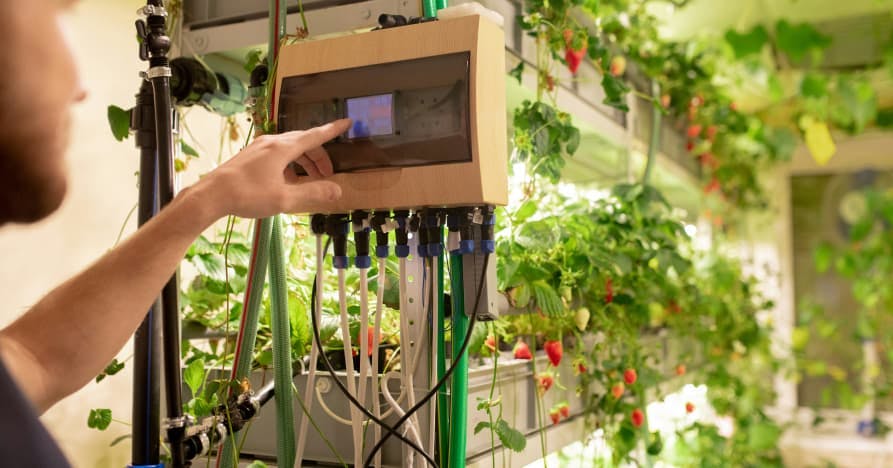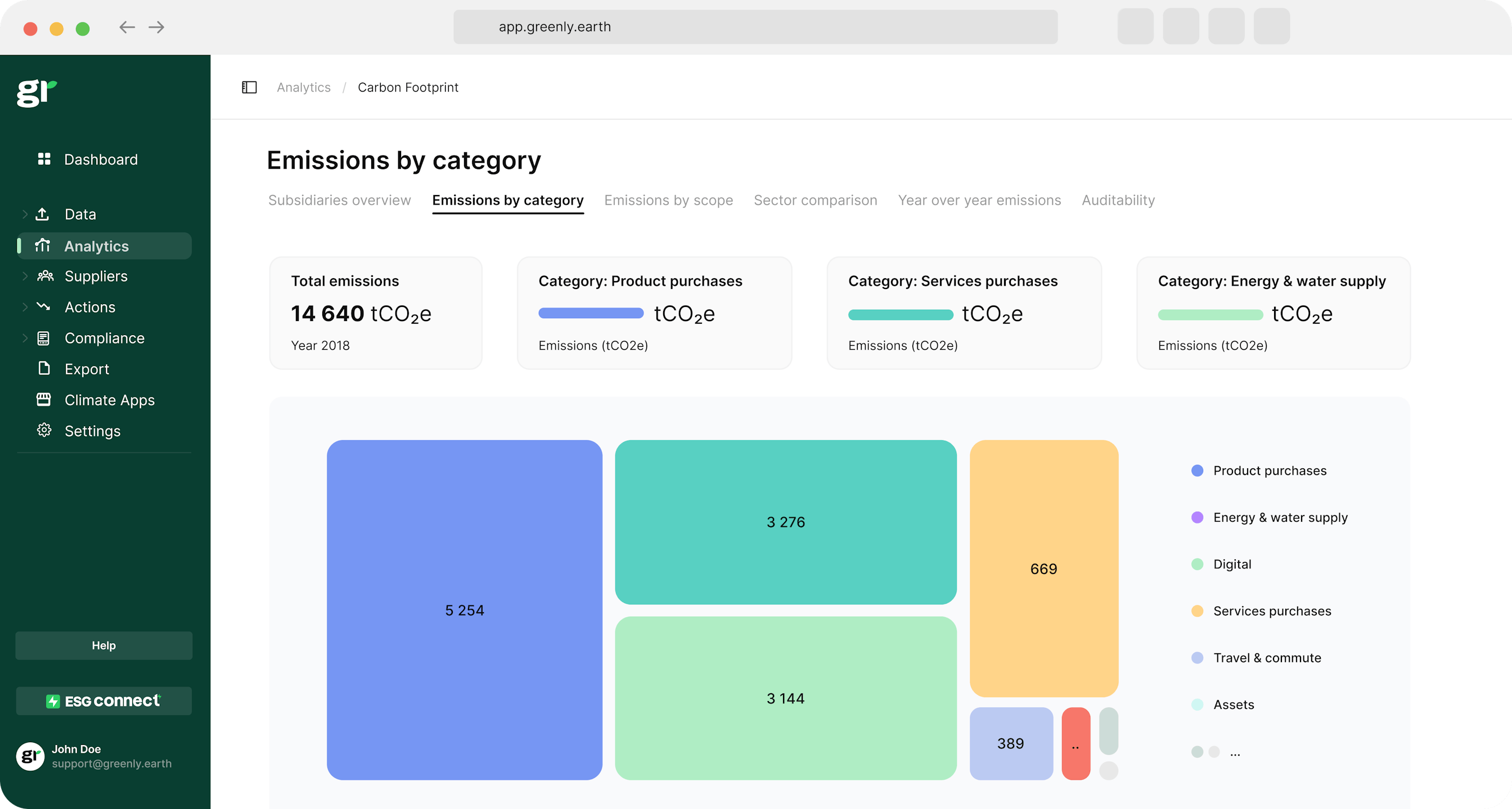
Impacts, Risks, and Opportunities (IRO) for CSRD Reporting
In this article, we’ll break down what IROs are, how to identify and assess them, and what CSRD requires in terms of disclosure.
ESG / CSR
Industries



Starting a business in the age of social media may seem easy enough, but the reality is that it couldn’t be more challenging – especially when it comes to trying to effectively start and succeed in opening a green business.
In fact, around 45% of businesses fail within the first five years – and only a quarter of businesses remain relevant after fifteen years.
Cultivating and maintaining a business is challenging enough when it comes to juggling suppliers, employees, and marketing campaigns – but keeping a green business up to speed is a whole other world.
In this article, we’ll explain what a green business is, examples, challenges, and how your company could become a green business itself.
A green business, also known as a sustainable business, refers to companies that make an effort to operate in a sustainable manner that does not cause measurable harm to the environment.
💡 In addition to reducing their environmental impact, a green business will try to benefit their local community and economy – ultimately creating a positive impact on the global economy with their newfound green business decisions.
Many companies will take some small first steps to become a green business, such as by:
👉 Ultimately, a green business will make a genuine effort to equally balance their goals in terms of profitability with making a difference to help the environment.

A green business is indispensable in today’s age as at some point, all businesses will eventually have to transition their companies to be considered as a green business – meaning that green businesses today serve as leaders in their respective industries.
💡 Modern businesses that still make use of fossil fuels and other unsustainable resources will eventually become obsolete and need to transition to the use of sustainable materials anyways.
Here are some other reasons why starting and maintaining a green business is important:
👉 Overall, green businesses are important as it allows companies to boost their brand image, gain a competitive advantage, and inspire other businesses to take action and mitigate their own negative environmental impact created by their business.

There are several examples of green businesses today, such as Patagonia, Tesla, and Seventh Generation.
Here are some examples of green businesses broken down:
This outdoor apparel company has been exceptionally committed to sustainability and environmental activism.
This is because Patagonia encourages customers to repair their current garments before throwing them out in addition to donating 1% of their annual sales to various environmental causes such as the Hodfast Collective to help create customised military gifts.
Tesla is a well-known car company that is making a genuine effort to decarbonise the average road trip and pave the way for more sustainable transportation, especially for countries in the United States where transportation emissions account for almost a third of all GHG emissions.
In addition to offering sleek and futuristic looking cars, Tesla prides itself on providing electric cars that are powered via various renewable energy sources – with the company citing solar panels as a major resource of energy.
💡Overall, Tesla is considered a green business as it’s making an effort to offer both visually appealing and environmentally functional vehicles for everyday use.
Seventh Generation works hard to offer eco-friendly household and personal care products by using plant-based and biodegradable ingredients.
In addition to this, Seventh Generation utilses sustainable packaging from their own recycled materials.
The company has made a commitment to using 100% renewable energy by 2025 alongside zero-waste packaging further demonstrating leadership to show other companies how decarbonising their business is possible.
👉 Remember, a company considered a green business doesn’t need to be “perfect” – but rather always striving to hit new environmental goals while also seeking new ways to benefit their local community.

There are several reasons why it can be challenging to become considered a green business, seeing as many westernised countries still value consumerism and
Here are just a few reasons why it could be challenging to develop and maintain a green business:
To compare and contrast the pros and cons of starting or shifting to a green business, refer to the table below:
| Benefits of Becoming a Green Business | Challenges of Becoming a Green Business |
|---|---|
| Reduced operational costs through energy efficiency and waste reduction. | High initial costs for implementing green technologies and sustainable practices. |
| Improved brand image and reputation with eco-conscious consumers. | Convincing consumers to pay a premium for sustainable products. |
| Access to new markets that prioritise environmental responsibility. | Complex supply chain management to ensure all partners are eco-friendly. |
| Compliance with future regulations and policies that may favor green businesses. | Lack of standardised sustainability certifications, leading to confusion. |
| Increased customer loyalty from those who value sustainability. | Potential internal resistance to changing long-established business practices. |
| Eligibility for government incentives or subsidies for eco-friendly practices. | Difficulty in accurately measuring and tracking environmental impact. |
| Reduced risk by staying ahead of environmental regulations and trends. | Risk of greenwashing accusations if sustainability claims are misleading. |
👉 It can prove taxing both financially and time-wise to eventually be considered as a green business, but the potential benefits and future longevity of your company are worth the effort.

There are several ways that your company can become a green business, such as by clearly communicating your environmental goals, actively looking to reduce waste, and transitioning to the use of clean energy.
It’s important to note that choosing to purchase carbon credits once or to offer a limited time promotion to customers that trade in old goods for new products should not be considered a green business.
💡 Becoming a green business insinuates consistent determination to make the environment and surrounding community a better place.
Here are some tips to help your company be considered as a green business:
Overall, working to develop a truly sustainable organisation and to be considered a green business will require consistent effort on behalf of your company – but there’s no better time to start than now, as the world continues to take one step closer to all businesses needing to be sustainable in order to thrive long-term.
If reading this article about what is considered a green business has made you interested in reducing your carbon emissions to further fight against climate change – Greenly can help you!
Trying to switch your company over to the values of a green business can be overwhelming, but don’t worry – Greenly is here to help. Click here to schedule a demo to see how Greenly can help you find ways to improve energy efficiency and decrease the dependency on fossil fuels in your own company.
Greenly can help you make an environmental change for the better, starting with a carbon footprint assessment to know how much carbon emissions your company produces.
Click here to learn more about Greenly and how we can help you reduce your carbon footprint.
